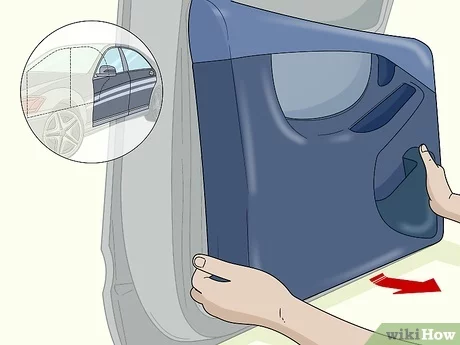How to Reduce Petrol Car Engine Noise
Reducing petrol car engine noise can be important for improving the overall driving experience, reducing noise pollution, and potentially increasing fuel efficiency. Here are some effective methods to achieve quieter engine operation:
1. Install an Exhaust System Muffler
The exhaust system is a major source of engine noise. Installing a muffler can significantly reduce the sound produced by the exhaust gases. There are various types of mufflers available, including glasspack, straight-through, and chambered mufflers.
It’s important to choose a muffler that is designed specifically for your vehicle and engine type. Installing an oversized or inappropriate muffler can have negative effects on performance and fuel economy.
2. Use Sound-Dampening Materials
Applying sound-dampening materials to the engine compartment, firewall, and undercarriage can effectively absorb and reduce engine noise. These materials are typically made from foam, rubber, or fiberglass.
Sound-dampening materials can be installed in various ways, such as by using adhesive strips, panels, or mats. It’s essential to ensure that these materials are properly secured and do not interfere with any engine components.
3. Upgrade to a Quieter Engine Oil
Engine oil acts as a lubricant, reducing friction between engine components. Using a thicker, high-quality engine oil can help minimize gear noise and other internal engine sounds.
Consult your vehicle’s owner’s manual for the recommended engine oil type and viscosity. Changing to a quieter engine oil can provide notable improvements in noise reduction.
4. Replace Engine Mounts
Engine mounts, which connect the engine to the chassis, can wear out over time and become less effective at damping engine vibrations. Replacing old or failing engine mounts can significantly reduce engine noise transmitted to the cabin.
It’s important to have engine mounts inspected by a qualified mechanic if you suspect they may need replacement.
5. Add a Catalytic Converter
In addition to reducing emissions, a catalytic converter can also help suppress engine noise. Catalytic converters are designed to control exhaust gas emissions, and they can also act as resonators, absorbing and reducing sound waves.
Installing an aftermarket catalytic converter can provide additional noise reduction, especially in older vehicles that may not have one.
6. Perform Regular Maintenance
Regular maintenance is crucial for maintaining a quiet engine. This includes:
- Changing the air filter to ensure adequate airflow to the engine.
- Checking and adjusting spark plugs to ensure optimal combustion.
- Replacing worn or damaged belts and hoses.
- Regularly inspecting and cleaning the exhaust system.
7. Drive at Lower RPMs
Driving at lower revolutions per minute (RPMs) can reduce engine noise. Avoid unnecessary acceleration and sudden braking, which can increase engine speed.
Using cruise control on highways can help maintain a steady RPM, reducing noise and potentially improving fuel economy.
By following these tips, you can significantly reduce the noise produced by your petrol car engine, improving the driving experience, reducing noise pollution, and potentially increasing fuel efficiency.





